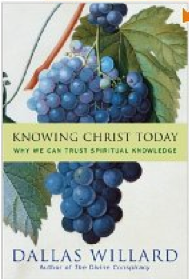The previous post in this series is here.
Matthew 18 has these verses:
15“If your brother sins against you, go and show him his fault, just between the two of you. If he listens to you, you have won your brother over. 16But if he will not listen, take one or two others along, so that ‘every matter may be established by the testimony of two or three witnesses.’ 17If he refuses to listen to them, tell it to the church; and if he refuses to listen even to the church, treat him as you would a pagan or a tax collector.
These verses seem to be about the appropriate response when someone sins against you in some more or less personal way.
Leaders in churches or para-church organizations should be cautious about suggesting this passage as the correct guidance for people who disagree with some aspect of their leadership or policies. There are two reasons for this:
1) The passage isn’t about disagreement with the decisions and policies of the leadership of a church or para-church organization. It’s about personal transgressions. That might be the case if a person in leadership does or says something inappropriate with regard to an individual, engages in some obviously immoral behavior, etc. It is not the case when the criticism is about the policies or decisions of a person in leadership.
2) If a leader inappropriately invokes this passage when some criticism is made, it is a double edged sword. Yes, it might convince someone to approach the leader first with their complaint. But there is a rapid escalation in the passage. Leaders who attempt to defend themselves with Matthew 18:15 risk that someone will read a couple of verses farther, and decide that it’s time to air matters in public after a single solo conversation and a single “group” conversation.
So, what scriptures DO apply when criticism of policies or decisions of leaders are involved? It’s not so simple. But there is a discussion of it here. Generally, if you don’t like the policies or decisions of a leader, you’re limited to working through the normal political process of your institution or church, unless you believe the policies or decisions amount to false teaching, or support for false teaching done by others. In that case, you have quite a bit of scripture reading to do, and commentaries to read, before you do much about it.
If you’re a leader of a church or para-church organization, the more restrictive advice of the epistles is a better source for ways you can manage such criticism than Matthew 18.
The next post in this series is here.









